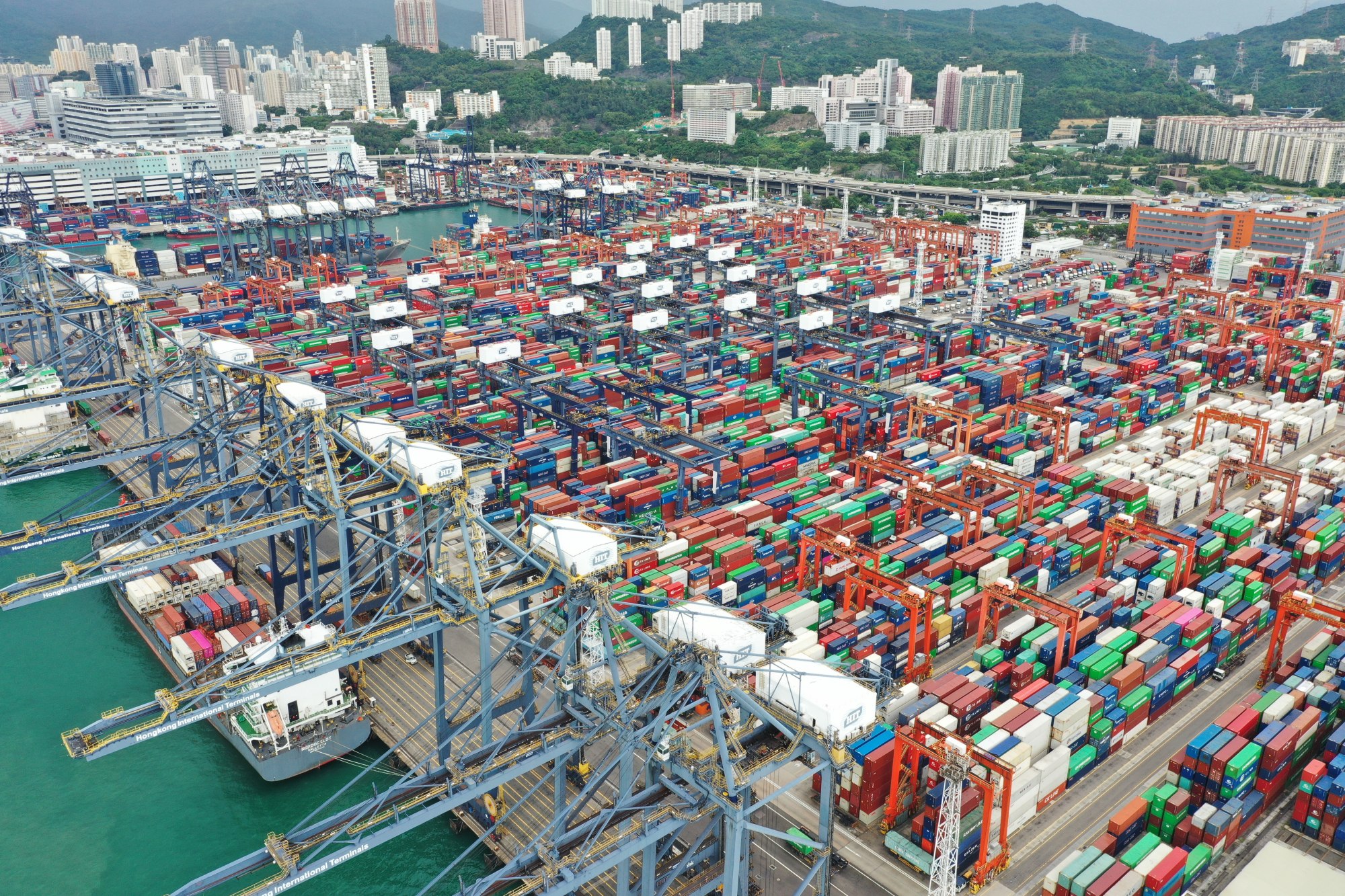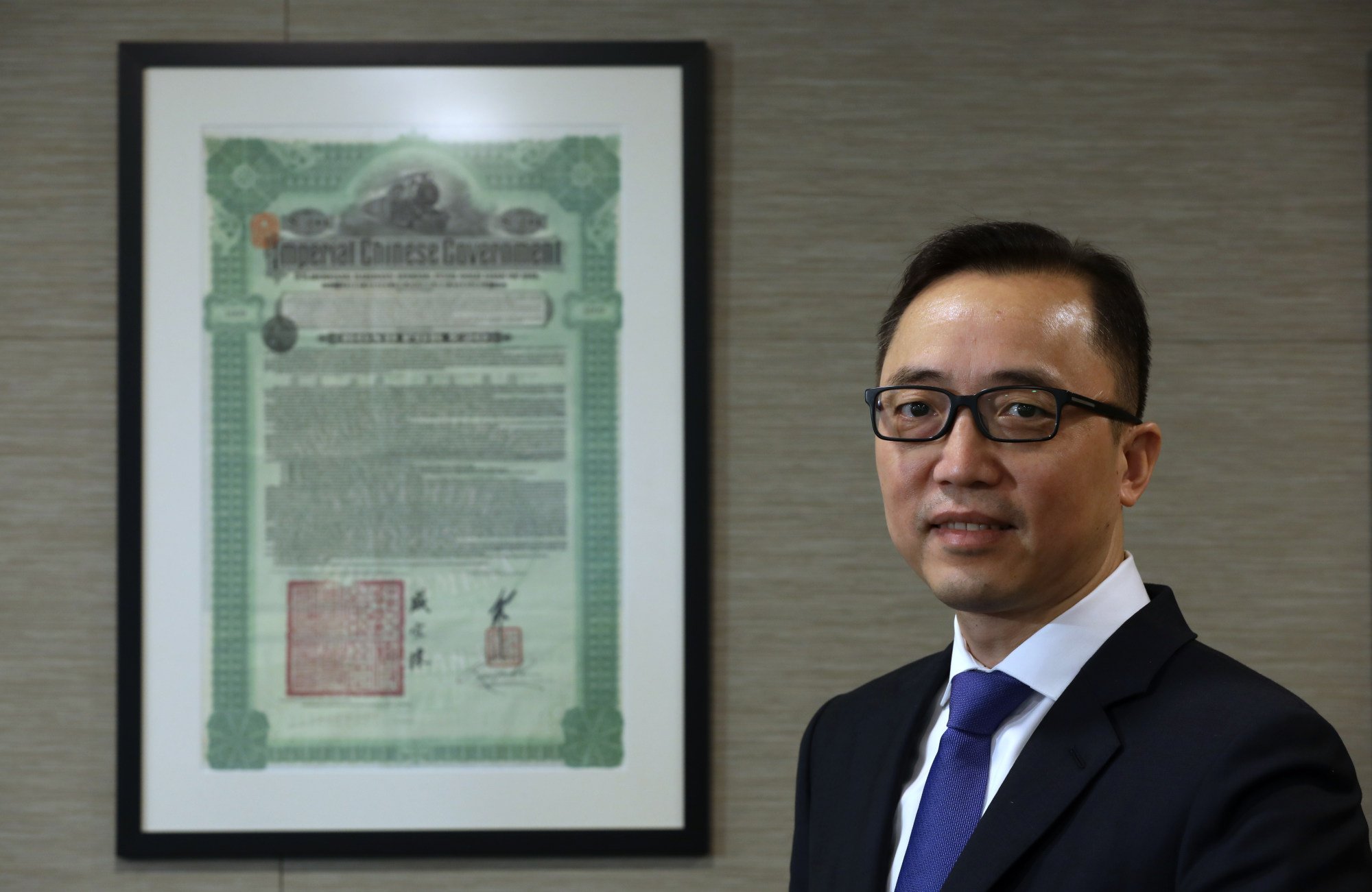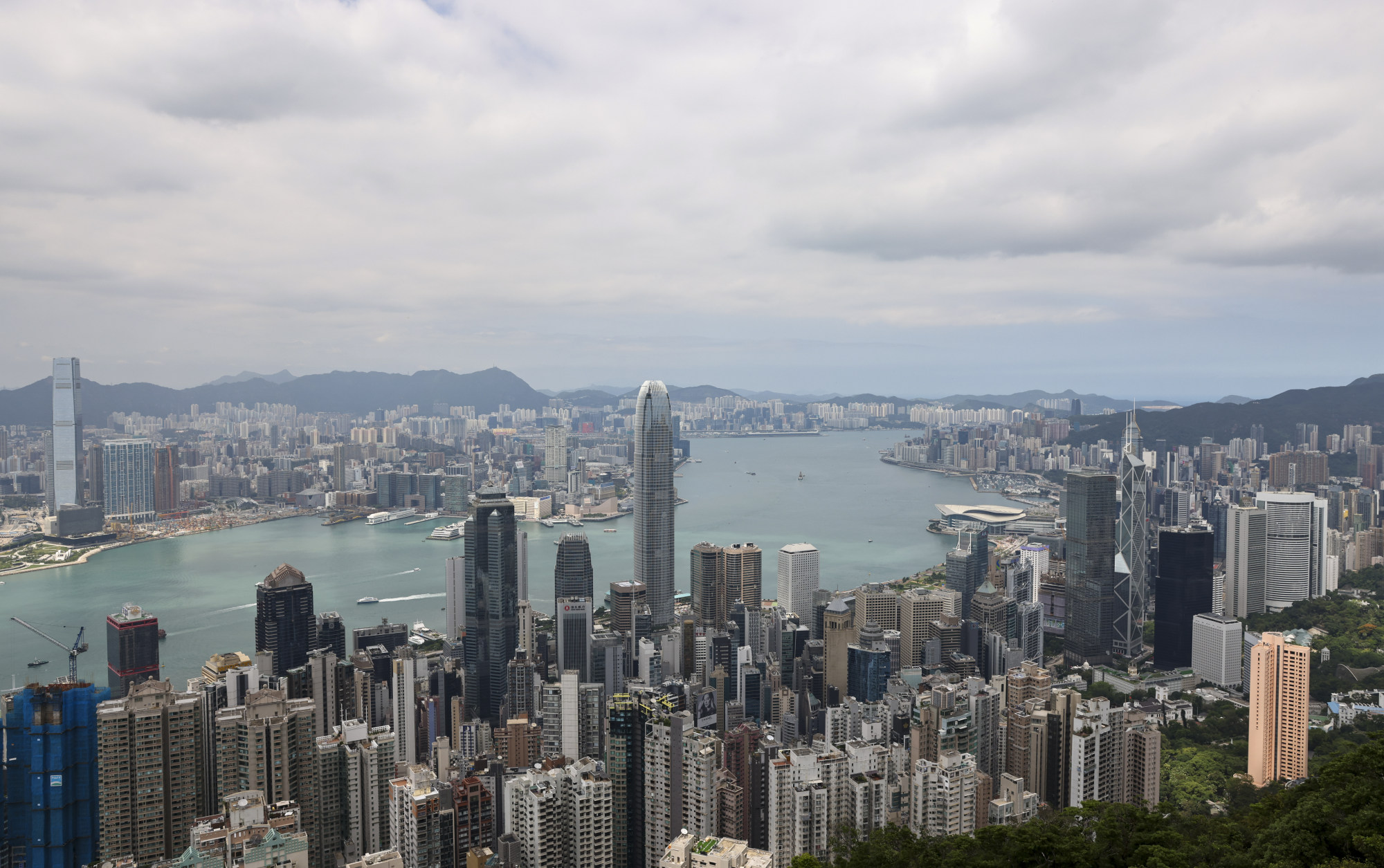
25 years after handover, mainland firms’ presence in Hong Kong grows exponentially and professionals who call city home say ‘the longer you stay here, the more you fancy it’
- Over past 25 years, many ‘Hong Kong drifters’ have been part of the city’s rapidly growing presence of mainland enterprises as well as joining ranks of international firms
- While 1,370 mainland firms account for only 53 per cent of listed companies in city, Corporate China makes up 78 per cent of the HK$37.9 trillion of market capitalisation
When lawmaker and shipping veteran Erik Yim Kong, 50, embarked on a new career move to Hong Kong 25 years ago just weeks before the handover, he had high hopes of making it big even if talk of emigration then was rife.
He assessed the situation and felt the metropolitan city known for its bountiful opportunities for people with ambition would not let him down.
Having graduated from Xiamen University in China with a bachelor’s degree in economics a few years back, he was dispatched by his then company Swire Group of Hong Kong in June 1997 to the city and put in charge of development of the firm’s shipping arm.

“I was full of great expectations for Hong Kong as I had faith in its ‘one country, two systems’ model after the handover,” he recalled.
“Hong Kong has always been a window between China and the rest of the world. At that time I thought Hong Kong would be a great place for development. I aspired to gain international management skills in Hong Kong with its global exposure.”
His career took off and he rapidly moved up the ranks. He later joined state-owned enterprise China Merchants Group in 2006 and rose to become vice-chairman of its subsidiary China Merchants Port Holdings Company, a public ports developer.
Yim is among the city’s flourishing mass of so-called gangpiao, or Hong Kong drifters, a term used to describe mainland Chinese who moved to the city for work but settled down over time. Over the past 25 years since Hong Kong’s return to Chinese sovereignty in 1997, many have been part of the rapidly growing presence of mainland enterprises in Hong Kong as well as joining the ranks of other international businesses.
Hong Kong lawmaker representing mainland firms says sector ready to lend a hand
Now becoming part and parcel of Hong Kong’s economic development, mainland firms and professionals have capitalised on the opportunities in the city to tap overseas markets, raise capital, and expand their operations or advance their careers across a wide range of sectors including finance, construction, property, transport and logistics, trading, tourism and innovation and technology.
Election Committee constituency lawmaker Chan Pui-leung, 62, also general manager of state-owned China Taiping Insurance (HK) Company, said Hong Kong’s unique role as a gateway to the world, its free flow of capital, rule of law and probity culture were key advantages that drew mainland enterprises and professionals alike to the city.
Today, China’s new economy leaders, from Alibaba Group Holding to Meituan, and industry stalwarts such as state-controlled oil producer CNOOC and China Mobile, are the dominant force among the Hang Seng Index’s 66 constituents, claiming 64 per cent of the weighting.
As China’s economic size grew from US$962 billion in 1997 to US$17.7 trillion in 2021, its representation in the broader Hong Kong stock market has become even more pervasive over the decades since the end of 155 years of colonial rule, according to the latest stock exchange data.
Hong Kong must ‘prepare for uncertainty but opportunities still present’
With 1,370 mainland firms accounting for only 53 per cent of the number of listed companies, Corporate China made up 78 per cent of the HK$37.9 trillion (US$4.8 billion) of market capitalisation as at the end of May. A decade ago, Chinese companies made up 51 per cent of new capital raised in Hong Kong, with the figure reaching more than 98 per cent last year.
Financial Secretary Paul Chan Mo-po had also said Hong Kong’s capital market could expect a boost from US-listed Chinese firms seeking secondary listings in the city amid intensified scrutiny in the United States. There have been about 21 such mainland firms seeking a secondary listing in Hong Kong, accounting for about 60 per cent to 70 per cent of their total asset value in the US stock market.
As at end of June last year, some 2,080 mainland enterprises set up firms in Hong Kong, a 5 per cent rise from 2020, according to annual statistics by government agency InvestHK.
As for the importation of mainland professionals, government data showed as at the end of last year, some 150,351 applications had been approved since the Admission Scheme for Mainland Talents and Professionals was put in place in July 2003.

Now equipped with rich managerial experience in the ports and logistics industries, Yim’s success story has been testimony to the growing influence of mainland firms and professionals across a wide spectrum of society.
“Mainland enterprises have also played an important role for making a stable supply of essential goods and services in Hong Kong as they have big investments in imported food and utilities such as live poultry, livestock, water and natural gas,” Yim said.
“They serve as a core driving force for Hong Kong’s prosperity and stability by safeguarding the city’s economy and livelihoods.”
Is Hong Kong a great place to live? How quality of life changed post-handover
Finance sector lawmaker Ronick Chan Chun-ying, 60, also an adviser at Bank of China (Hong Kong), pointed to British conglomerates’ lack of faith in the city’s future as a major factor in them being overtaken by mainland enterprises in the post-handover era.
“British enterprises were highly sceptical about whether Hong Kong would continue to prosper after the handover, which triggered them to relocate to other regions from the city,” he said.
“Mainland firms were readily available to fill the void as they were willing to increase their investment and diversify their business in Hong Kong. They were full of confidence over the city’s future with Beijing’s backing.”
Hubei native Duke Du Jinsong, 52, who co-founded BOCI in London way back in 1996 as the first overseas investment banking arm for Bank of China Group, was among the mainland professionals eager to have a piece of the action in Hong Kong.
In 1999, the banker was sent by the state-owned bank to Hong Kong as the city was then regarded as the right place to set up its investment banking headquarters as a bridge between China and the world.

“Hong Kong is close to the mainland while investors here understand the potential of the mainland’s economic growth and the business opportunities for mainland companies,” he said.
Since then, Du has become one of the thousands of mainland financial professionals who call Hong Kong home and has powered through the ups and downs of the markets at three different mainland investment banks in the city for 23 years.
During that period Du managed to make friends with Hongkongers who were mainly his colleagues or classmates from some university courses he attended. While he said he had never come across discrimination in the city, he felt troubled during the social unrest in 2019.
“In 2019, I did feel unsafe during the turmoil. When I read a report that someone spilled oil on the road in Chai Wan, I felt very scared,” he recalled.
“It would be a terrorist attack if the road was criminally damaged. I believed at that time Hong Kong was not the one we had lived in and loved so much.
“I felt sorry for the few people who destroyed the core value of the rule of law in Hong Kong.”
While that was a disturbing interlude, Yim and many others said the going for them had been smooth, provided they were respectful and adaptable to the ways of the city over the years. They advised mainland firms and professionals to adjust to the culture and norms of Hong Kong, which in many ways were different from the mainland’s.
“For myself, I needed to go through a period of adaptation. The first thing was to learn Cantonese. I forced myself to grab any chance to speak Cantonese and learn their culture,” Yim recalled.
“For gangpiao, it is not easy for them to adapt to the Hong Kong culture in the beginning. It will be hard for them to have a sense of belonging here. But this is a challenge they need to tackle.”
Hong Kong woos bankers to reboot city’s mojo in world finance
Du also acknowledged the cultural differences between the Chinese way of business versus the Western approach in Hong Kong.
“The mainland investment bank has brought in a very different culture to the Hong Kong financial sector and the bankers compete for deals fiercely. Most mainland bankers work day and night to get deals done without any holiday,” Du said.
Western firms placed greater emphasis on providing work-life balance for their staff, he noted.
The financial veteran is now poised to take on a new challenge, opting for a career change to study law at the University of Hong Kong.

Lawmaker Ronick Chan added many mainland professionals complained that they were given strange looks from locals in the beginning as they were mistaken for solo travellers from across the border.
“In the beginning they felt a little bit unhappy and uncomfortable about it. But when people realised they were not solo travellers, they stopped treating them differently,” he said. “Actually, Hongkongers are also starting to adapt to the city being an inclusive society.”
Legislator Chan Pui-leung said he had not come across cases of mainland professionals feeling excluded or discriminated against but many did take a long time to get accustomed to the complex due process of law in Hong Kong, which was very different from that of the mainland.
“But there are a lot of things for Hongkongers to take away, such as mainland professionals’ advanced IT knowledge, their innovative and aggressive ways of conducting business,” he said. “Hongkongers have learned a lot of things from them for upgrading their operations.”
Chan said riding on China’s rapid economic growth, mainland enterprises started to scale up their investment in Hong Kong and double down on the training of mainland and local talent in the city.
“They want to capitalise on Hong Kong’s international role to break into overseas markets. Through various acquisition deals and expansion plans in the city, they have been gaining influence with a bigger presence and market share here,” he said.
Edward Liu Chang, 38, chief investment officer of Avantua, a private equity fund launched by Adrian Cheng Chi-kong, CEO of property developer New World Development, said Hong Kong remained a place full of opportunities for mainland talent despite the turmoil of recent years.
Hong Kong ranks 5th in list of world’s most competitive economies
In 2011, he was relocated by his French company from Beijing to Hong Kong as an index trader and eight months later he joined major mainland asset manager China Asset Management (Hong Kong) and worked his way up to become senior vice-president until his departure last year.
“I have to say, professionals with a mainland background like me embraced a lot of opportunities in the city in the past 10 years amid the booming capital market on the back of the fast economic growth in China and technology companies flourishing in particular,” he said.
“A batch of mainland financial institutions expanded their teams in the city while international firms are also in favour of talent with a mainland background as we know China better … With knowledge and expertise, you will find your chance in the city.”
Before he never thought of calling Hong Kong home. But as time went by, like Yim and many others, he considered himself as part of Hong Kong. “Hong Kong is a place where the longer you stay, the more you fancy it,” Liu said.
Looking forward, observers said mainland enterprises would continue to expand their operations in Hong Kong on the back of the nation’s policies, especially the 14th five-year plan under which Beijing has vowed to support the city in reinforcing its status as an international financial, shipping, trading and legal services centre.
“Many have started to take root in the city and consider themselves as part of Hong Kong. Mainland enterprises will continue to grow in the city,” Ronick Chan said.
Chan Pui-leung agreed, saying: “There will be more cooperation between mainland and local firms.”
Du said: “I believe Hong Kong can and will be a connector in the rule-of-law system between China and the world. That is also an important area for Hong Kong to make great contributions to the country.”



